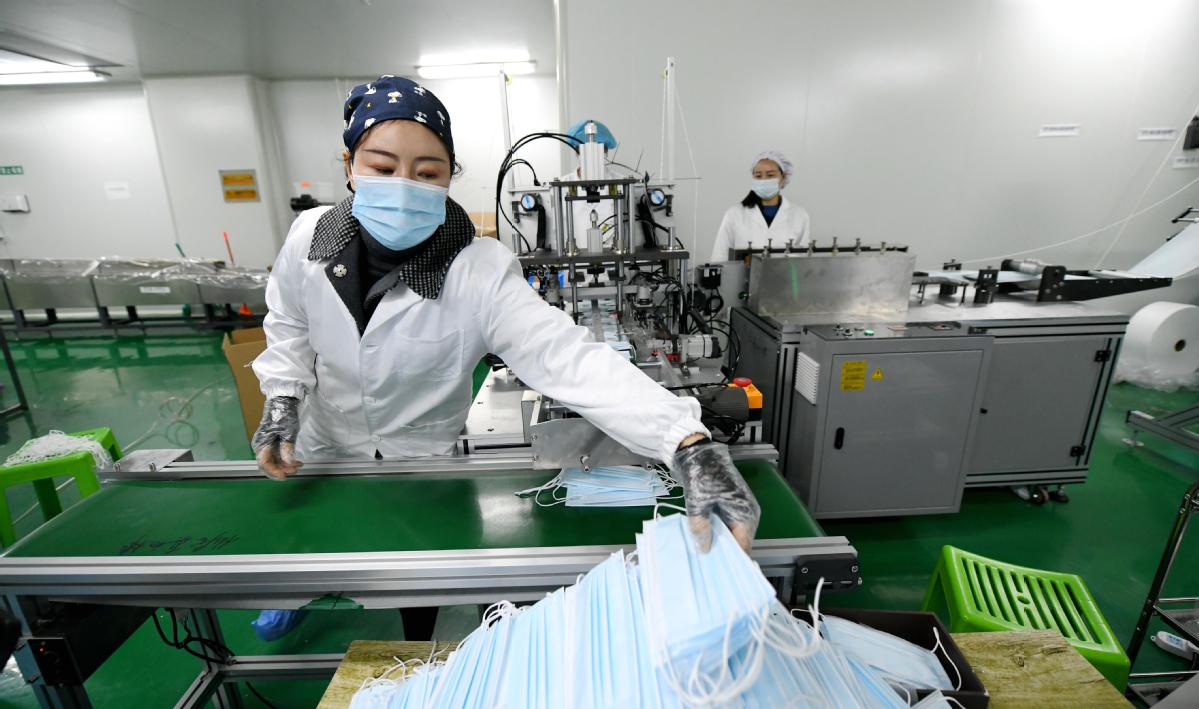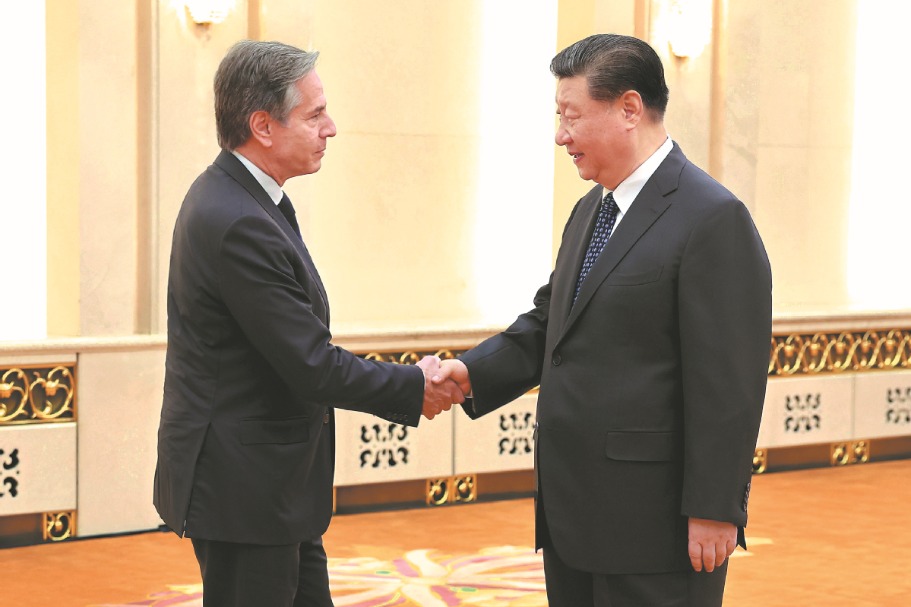Private companies diversify sales to sustain growth during epidemic
By ZHONG NAN | China Daily | Updated: 2020-03-21 09:28

China's private companies involved in light industry have been diversifying sales channels and temporarily suspending investment activities to ensure order flows are not disrupted by the COVID-19 outbreak, industry experts said.
Even though the country has achieved a notable breakthrough in containing the spread of the disease nationwide, the China National Textile and Apparel Council said in a statement this month that labor shortages, poor logistics and costly shipping prices are limiting the ability of companies seeking to resume production. Some firms are also facing insufficient market demand.
As the majority of its member companies are private firms, the Beijing-based CNTAC has been guiding garment manufacturers to tap market resources through both online and exhibition platforms such as the China Import and Export Fair (Canton Fair).
They should also work with related government offices on fresh policy measures to keep business turnover going.
Shanghai Runmi Technology Co, a Chinese suitcase and garment product manufacturer, required all its 10 plants to adopt measures for epidemic prevention and control in their domestic and overseas markets.
"To retain sustainable growth, we have stopped scale expansion and put healthy economic indicators such as net profit and cash flow in first place and reduced costs while increasing production efficiency. The firms' factories have basically resumed production across the world," Shanghai Runmi CEO Zhang Shuo said.
Since the disease added many uncertainties to manufacturing activities in the world market, the company's factories in Indonesia and other regions have adopted more stringent anti-epidemic measures, he noted.
Shanghai Runmi's domestic manufacturing facilities are preparing to raise production volume to effectively respond to possible changes in its overseas factories.
Zhang predicted customers may undertake some compensatory consumption activities once the crisis is over.
But the epidemic situation in many countries has worsened so the vast majority of domestic consumers are reluctant to make overseas trips and will be focusing more on tourism locations within China. This will benefit the domestic tourism market in the second half of the year.
As part of its next step, the company will develop other products such as bags and down coats to enrich its sales lines.
On another front, major fashion company Ningbo Peacebird Fashion Co Ltd has been relying on expanding the scale of its new retail business via platforms such as WeChat, livestreaming and other new retail tools to promote its products. The sales from this segment accounted for more than half of its total sales over the past two months. The firm has also been manufacturing face masks during the outbreak.
The company sold 246 million yuan ($34.65 million) worth of clothes via both online platforms and stores between March 5 and March 8 in a three-day promotional event.
It is studying changes in consumer demand through big data analysis and has quickly organized production and sales based on those results to meet consumer demand, said Peacebird CEO Chen Hongchao. The firm said the group will improve logistics, warehouse and other infrastructure to support the company's operations.
Chen believes consumer demand is expected to rebound during the post-epidemic period, especially since China intensified global cooperation to contain COVID-19 and minimize risks to its economic growth.
The outbreak in China prompted some orders to be diverted to garment and textile makers in Southeast Asia and South Asia.
It is urgent for companies in the country to explore demand opportunities, effectively coordinate industrial materials and steadily increase supply capacity to ensure their global market presence, particularly in economies linked to the Belt and Road Initiative, said Guo Xin, a marketing professor at Beijing Technology and Business University.
She added more government support should be provided to accelerate the full recovery of the supply chain of private firms. Financial subsidies should be offered to businesses and households to stimulate consumption, especially in the hardest-hit areas and less-developed regions.
























